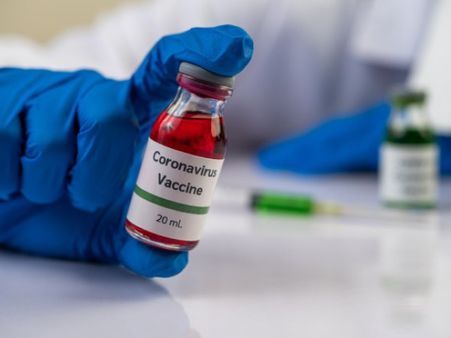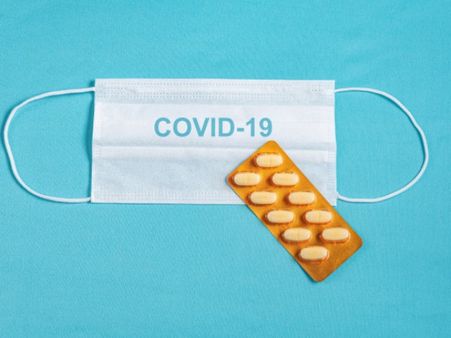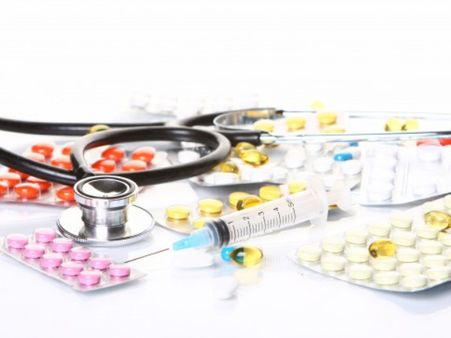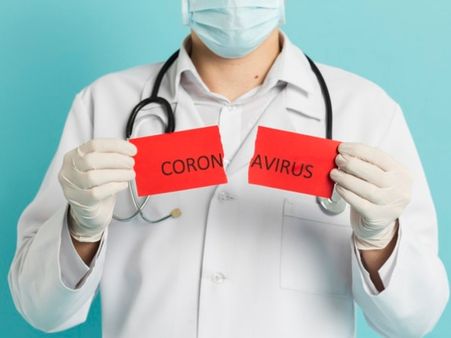Just In
- 14 min ago

- 2 hrs ago

- 3 hrs ago

- 5 hrs ago

Don't Miss
- Movies
 Thug Life Release Date Update: Kamal Haasan-Mani Ratnam's Epic Drama To Hit Screens In 2025 On This Date?
Thug Life Release Date Update: Kamal Haasan-Mani Ratnam's Epic Drama To Hit Screens In 2025 On This Date? - News
 WATCH Viral Video Mona Lisa Rapping: Microsoft's AI App Transforms Iconic Painting Into Singing Sensation
WATCH Viral Video Mona Lisa Rapping: Microsoft's AI App Transforms Iconic Painting Into Singing Sensation - Education
 UPMSP Class 10 and 12 Results 2024 to be Released Today, Check the Details Here
UPMSP Class 10 and 12 Results 2024 to be Released Today, Check the Details Here - Sports
 Virat Kohli Record Against Kolkata Knight Riders and at Eden Gardens Ahead Of RCB vs KKR IPL 2024 Match 36
Virat Kohli Record Against Kolkata Knight Riders and at Eden Gardens Ahead Of RCB vs KKR IPL 2024 Match 36 - Finance
 Want To Be Debt Free? 5 Simple Ways To Repay Your Loan Faster
Want To Be Debt Free? 5 Simple Ways To Repay Your Loan Faster - Automobiles
 Tesla CEO Elon Musk's Much-Awaited Visit to India Deferred, Leaving Questions Unanswered
Tesla CEO Elon Musk's Much-Awaited Visit to India Deferred, Leaving Questions Unanswered - Technology
 Garena Free Fire Max Redeem Codes for April 20, 2024: Get Access to the Latest In-game Loot
Garena Free Fire Max Redeem Codes for April 20, 2024: Get Access to the Latest In-game Loot - Travel
 Journey From Delhi To Ooty: Top Transport Options And Attractions
Journey From Delhi To Ooty: Top Transport Options And Attractions
COVID-19: Hydroxychloroquine May Cause Low Blood Sugar & Irregular Heartbeat, Study Claims
Hydroxychloroquine is a prescription drug which comes in the form of oral tablets and can be used as part of combination therapy. Commonly used in the prevention and treatment of malaria, the drug is also used to treat lupus erythematosus and rheumatoid arthritis.

Hydroxychloroquine is one of the most common terms discussed right now, amidst the Covid-19 pandemic, however, according to a new study, the drugs hydroxychloroquine and chloroquine have adverse side effects on patients [1].

Reported COVID-19 Drugs May Cause Irregular Heartbeat & Reduced Blood Glucose Levels
As per the findings of a recent review published in the Canadian Medical Association Journal, the alleged remedy for the pandemic has been proven to have potential side effects [2].
The plethora of side effects of the drugs chloroquine and hydroxychloroquine have been initially pointed out by researchers, asserting that extensive studies have to be conducted to actually assess the effectiveness of the drugs on a person affected by the coronavirus.
The review stressed the potential adverse effects of these drugs and added that the response to treatment varies according to the individuals. While some people's bodies process chloroquine and hydroxychloroquine poorly, a small percentage can metabolise them rapidly, thereby stating that the effectiveness of the treatment is not specific [3][4].
The paper added that the covid-19 drugs, chloroquine and hydroxychloroquine can be extremely toxic when overdosed and can cause cardiac arrest, seizures and coma [5].

What Are The Side Effects Of Hydroxychloroquine?
The side effects of the covid-19 drugs are plenty and common and mild side effects include headache, dizziness, diarrhoea, sore throat, stomach cramps and vomiting. These side effects usually go away within a few days or a couple of weeks [6].
Severe side effects include blurred vision or permanent vision problems, heart disease, including heart failure and issues with your heart rhythm, ringing in your ears or hearing lossangioedema (rapid swelling of your skin), hives, mild or severe bronchospasm, severe hypoglycemia, unusual bleeding or bruising, blue-black skin colour, muscle weakness and hair loss or changes in hair colour [7].
Symptoms of hydroxychloroquine overdose include drowsiness, dry mouth, increased thirst, loss of appetite, mood changes, no pulse or blood pressure, numbness or tingling in the hands, feet, or lips and unconsciousness [8].
Apart from these, certain side effects of hydroxychloroquine usually do not need medical attention and may go away during treatment as the individual's body adjusts to the medicine and they are ringing or buzzing or other unexplained noise in the ears, irritability, nausea, nervousness, nightmares, spinning sensation, shakiness and unsteady walk, uncontrolled eye movements, trembling or other problems with muscle control or coordination and vomiting [9].

What Are The Side Effects Of Chloroquine?
The common side effects of chloroquine phosphate are headache, loss of appetite, diarrhoea, upset stomach, stomach pain, skin rash or itching, hair loss and mood or mental changes [10]. The other side effects of the covid-19 drug, are back, leg, or stomach pains, black, tarry stools, bleeding gums, blistering, peeling, or loosening of the skin, drooling, blood in the urine or stools and blurred or decreased vision [11].
The more severe symptoms of chloroquine include difficulty in focusing the eyes, difficulty with speaking, fast, slow, irregular, or pounding heartbeat, hearing loss, inability to move the eyes, painful or difficult urination, skin rash, hives, or itching, tightness in the chest, trouble breathing, tunnel vision, unusual bleeding or bruising and yellow eyes and skin [12].
Symptoms of chloroquine overdose include cold, clammy skin, decreased urine, drowsiness, dry mouth, fast, weak pulse, increased thirst, lightheadedness, dizziness, or fainting, loss of appetite, muscle pain or cramps and numbness or tingling in the hands, feet, or lips [13].
Apart from these, certain side effects of chloroquine usually do not need medical attention and may go away during treatment and they are a change in hair colour, hair loss, increased sensitivity of the skin to sunlight, redness or other discolouration of the skin, severe sunburn, stomach cramps, trouble sleeping and weight loss [14].


Current Popularity Of The Drug Can Cause Shortage
The researchers also added that the (current) extensive as well as the indiscriminate use of hydroxychloroquine can lead to a shortage in its supply, which will affect the individuals who are actually prescribed the drug. That is, this increased demand may make it unavailable to patients with autoimmune disorders such as rheumatoid arthritis, lupus, and other chronic diseases [15].

The Covid-19 Drugs May Worsen The Disease
The over exceeding side effects of the drugs have been questioned, with researchers asserting that the evidence that these treatments might be beneficial in patients with COVID-19 is of poor quality.
The paper continued to state that it is possible that the drugs could worsen the disease. "Despite optimism (in some, even enthusiasm) for the potential of chloroquine or hydroxychloroquine in the treatment of COVID-19, little consideration has been given to the possibility that the drugs might negatively influence the course of the disease," said the researchers.
They added, "This is why we need a better evidence base before routinely using these drugs to treat patients with COVID-19" [16].

On A Final Note…
According to reports, there are almost 70 existing drugs that have the possible potential to target the coronavirus, with many of them have been already approved for other diseases. With hundreds of researchers extensively working on developing a potent cure for the coronavirus disease, there is hope for a positive result.
-
 disorders cureIndia May See A Covid Surge In January, Next 40 Days Crucial; Here Is How To Protect Yourself From COVID-19
disorders cureIndia May See A Covid Surge In January, Next 40 Days Crucial; Here Is How To Protect Yourself From COVID-19 -
 disorders cureCOVID Can Trigger Parkinson's Disease: Study
disorders cureCOVID Can Trigger Parkinson's Disease: Study -
 disorders cureCommon COVID Symptoms In Fully Vaccinated Individuals: What You Should Know
disorders cureCommon COVID Symptoms In Fully Vaccinated Individuals: What You Should Know -
 wellnessMild COVID Linked To Life-Threatening Blood Clots, Increased Risk Of Cardiovascular Disease; Study
wellnessMild COVID Linked To Life-Threatening Blood Clots, Increased Risk Of Cardiovascular Disease; Study -
 wellnessCOVID-19 Variants In India: New COVID Variant May Pose Threat To Elderly People
wellnessCOVID-19 Variants In India: New COVID Variant May Pose Threat To Elderly People -
 basicsCovid-19 Linked To Early Onset Of Periods: What You Need To Know
basicsCovid-19 Linked To Early Onset Of Periods: What You Need To Know -
 wellnessCOVID XBB Variants Of Omicron In India: What You Should Know
wellnessCOVID XBB Variants Of Omicron In India: What You Should Know -
 disorders cureNew Omicron Subvariant BQ.1 Detected In Maharashtra: What You Should Know
disorders cureNew Omicron Subvariant BQ.1 Detected In Maharashtra: What You Should Know -
 disorders cureOmicron BF.7 In India, Risk Of Fresh Wave During Diwali: What You Should Know
disorders cureOmicron BF.7 In India, Risk Of Fresh Wave During Diwali: What You Should Know -
 womenPriyanka Chopra Speaks On Climate Change, COVID, Poverty At The UN Sustainable Development Goals 2022 Moment
womenPriyanka Chopra Speaks On Climate Change, COVID, Poverty At The UN Sustainable Development Goals 2022 Moment -
 wellnessCoronavirus Residues Might Be Causing Long COVID: New Study
wellnessCoronavirus Residues Might Be Causing Long COVID: New Study -
 art cultureRenowned Spanish Author Javier Marias Passes Away Due To Lung Infection Post COVID-19
art cultureRenowned Spanish Author Javier Marias Passes Away Due To Lung Infection Post COVID-19


 Click it and Unblock the Notifications
Click it and Unblock the Notifications



